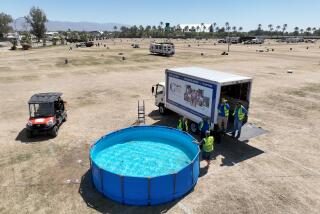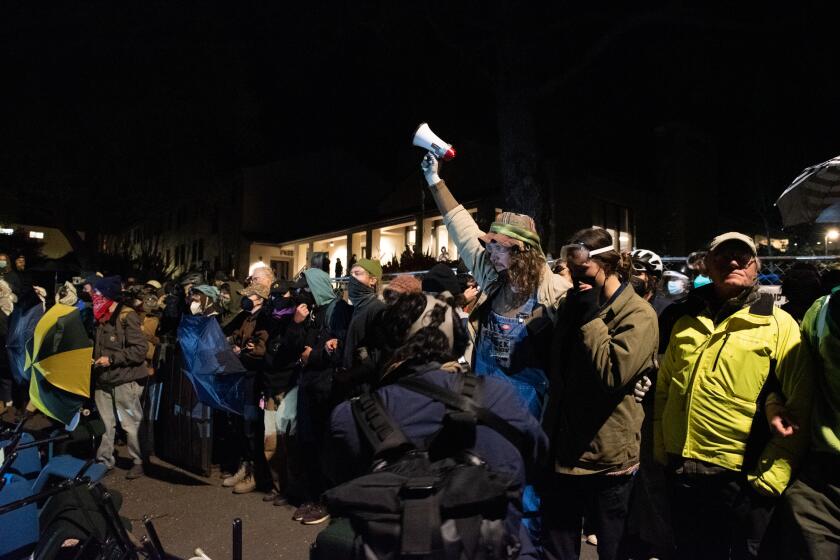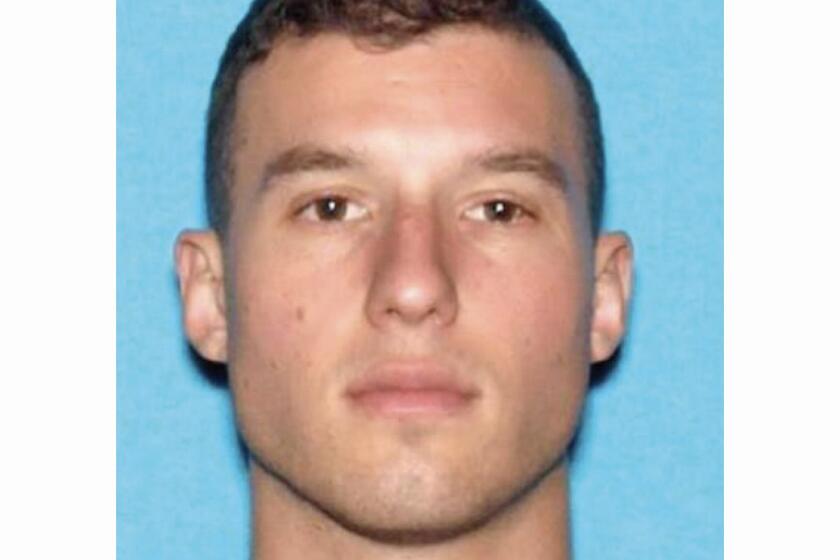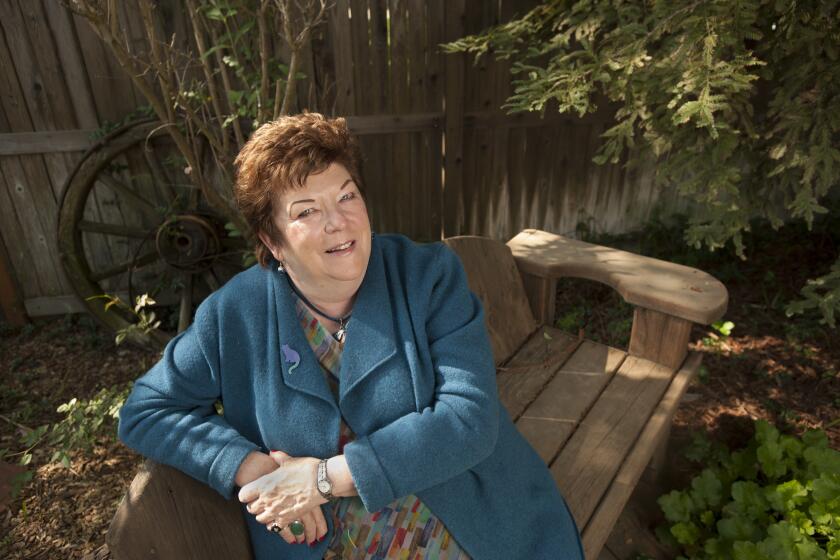Jurors Rattled by Aftermath; Defend Verdicts
Some of the jurors fled their homes, fearful for their lives. Others retreated behind locked doors and struggled to comprehend the violent aftermath of their verdicts.
At least two, shaken to the edge of tears, wondered whether they could possibly be responsible for the rioting and fires that were spreading through Los Angeles.
“I’ve gotten some calls saying that I’ll have to live with this for the rest of my life,” said one juror who was among the last holdouts--pushing for at least one guilty verdict against at least one of the four officers in the Rodney G. King beating trial that consumed them for two months.
“Personally, it’s been a little hell,” he said. “I would not want to do this again.”
Thursday, indeed, was a shattering day for many of the 12 people who just hours before had left a Simi Valley courthouse, thanked by the judge for their service after they found four Los Angeles police officers not guilty in the celebrated videotaped beating. Then sheriff’s deputies whisked them out of the courthouse and, for a brief moment, it seemed like a game, almost, with all the maneuvering to avoid the mobs of reporters.
Next came feelings of relief and liberation, culminating in the cathartic hugging of fellow jurors, their newfound family--first in the hotel where they had been sequestered, and finally in the parking lot of the Thousand Oaks sheriff’s station, where they picked up their cars.
But by the time they returned home--some to Simi Valley, others as far as Oxnard and Ventura--the first hints of fire and looting were flickering on their TVs and political and legal analysts were second-guessing their seven days of deliberations, many attributing the verdicts to pro-police bias of the jury, and to racism.
“This is the worst experience of my life,” said one male juror. “I don’t know what’s in the hearts of the others. But I know in my heart I’m not a racist.”
Like others who agreed to discuss the case, he asked that his name not be used for fear of retaliation against him and his family. At least two left their homes Thursday, including a panelist from Santa Paula, whose family was in tears, according to a neighbor. “They were in fear for their lives,” the neighbor said.
The jurors had been thrown together in the highly sensitive case after a state appeals court ordered the trial moved from Los Angeles County because of “extensive and pervasive” media coverage and intense political fallout. They were the survivors of a painstaking, monthlong process of jury selection in which 248 other Ventura County residents were eliminated, including several blacks who said they could not be impartial.
They were six men and six women, an even division of Democrats and Republicans, as well. Ranging in age from 38 to 65, they represented many corners of society--a cable splicer, a bank clerk, a retired real estate broker, a phone company technician, a computer analyst, a housekeeper, a retired naval aviator, a park ranger, a college groundskeeper, a program manager, a retired mental health worker and a nurse. But the fact most often pointed out is that none of the jurors are black.
At the end of deliberations, they agreed that none of them would talk to reporters, and the only statements in court--by the 65-year-old forewoman--suggested that the panelists had been almost immediately united on all their verdicts. She said they spent the vast majority of time debating the one charge on which they could never agree--ending up deadlocked 8 to 4 in favor of acquitting Officer Laurence M. Powell of an assault charge.
But four jurors who have since discussed the case with The Times said the panel was more divided than it initially appeared.
“It was highly charged. I broke down crying. Several other people did too,” said the juror, who pushed to the end for a guilty verdict on one charge against Powell, the officer caught on videotape delivering the most baton blows against King.
The jury began its deliberations, he said, by discussing the defendants whose cases seemed the easiest to them.
They did not dwell much on Theodore J. Briseno, though they never bought his “choir boy defense . . . that he was trying to protect King, that he was Superman, trying to be the one good guy out there to protect the innocent,” the juror said.
By the end of the first full day of deliberations, non-binding straw votes found the jury unanimous in believing that Briseno and Officer Timothy E. Wind should be acquitted.
Then they turned to Powell. Deliberations on the most serious charge against him, assault with a deadly weapon, “took a day and a half,” the juror said.
“There were a lot of discussions back and forth. The majority said ‘not guilty,’ and I (initially) was undecided, and there were those--more than one--who felt there was guilt.”
But this juror eventually joined the rest in voting to acquit Powell of that count.
“By Sunday midday,” he said, “everyone but myself had agreed on not guilty, and I felt that was a point where I could not convince myself of guilt beyond a reasonable doubt--which is the key phrase in my mind. . . . My feeling was that there was guilt but I couldn’t prove it to myself beyond a reasonable doubt.”
He and three others, however, held out for conviction of Powell on a charge of assault under color of authority.
Wednesday morning, they took their final ballots, clearing the supervisor at the scene, Sgt. Stacey C. Koon, along with his men.
The juror was distraught to hear critics later say that the panel had whitewashed what had seemed to be an open-and-shut case.
“The law is set up in such a way in our country that sometimes guilty men go free to ensure that innocent men are not locked up unjustly,” the juror said. “Some of the people protesting, making comments about the jury, have to realize if they were arrested they would want that same consideration.”
As he watched the fires spread Thursday, he said: “I can’t believe all of this is a reaction to what we did.”
Another juror--looking exhausted and bleary-eyed, smoking a morning cigarette outside his home--would not even discuss what had happened.
“I need some time alone with my family to think about what happened,” he said. “. . . I need to be alone.”
More to Read
Start your day right
Sign up for Essential California for news, features and recommendations from the L.A. Times and beyond in your inbox six days a week.
You may occasionally receive promotional content from the Los Angeles Times.






